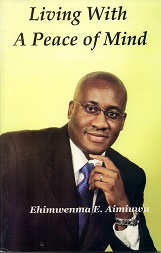How did Coming to America affect my college life positively?
As an American who was raised in Africa, I feel that I was qualified to critique the two movies about Akeem and the Kingdom of Zamunda. I watched the first movie as a teenager in Africa and 30 years later, watched the second movie as an adult, father, and husband in America, but the two movies gave me a very different feeling about Akeem at opposite ends of the spectrum.
When I first watched “Coming to America” in Nigeria around 1989, I was very proud to see Africa in such positive light on American screen. A few years afterwards, I returned to America for college and was surprised to see how much impact the movie had in helping me to assimilate easily into the American college life. I came as an African teenager who may have to struggle with discrimination and acceptance, but I found that many college students at Kent State University, where I was actually born, where excited and fascinated to see me. They did not just become my friends, but they also saw me as Akeem, the prince from Africa, which I enjoyed a lot.
My first two years of college, which was 1993-1994, I attracted a lot of teenagers as friends regardless of their race or gender because the movie gave me some social and political status. Many made me repeat myself intentionally because they wanted to hear my Zamunda accent numerous time; others wanted to know if I has wild animals as pets at the back of my house; some wanted to know if I lived in a palace with naked women bathing me, and many wanted to know what life was like in Africa. Many of the boys, especially African Americans, saw me as special and as someone that could make a difference. They were happy to have me around and always wanted to hear my views on anything. While the White boys thought I was cool and funny to be around, the White girls always loved to show me off as their friend to other White girls.
The first movie helped me to break the ice in the new Kent and American society in the early 1990s to the extent that it was easy for me to gain support to win student political elections, make the Homecoming Court, and even played in the Kent State Soccer Club as well as in the United States Amateur Soccer League (before the professional Major League Soccer was established). The first movie made a young African teenage from a third world continent become Akeem in the greatest nation on earth and I was welcomed with open hands because the movie made the citizens think highly of me and wanted to know more of me.
How did Coming2America affect my adult life negatively?
Over 30 years later, I watched the second movie, “Coming 2 America”. While I celebrate the fact that it supported many black actors and actresses; was filmed in a black owned setting; used a black owned studio; and tried to maintain a connection between Africans and African Americans, it did not meet the expectation of addressing the current issues of blacks in America in the last decade and be a platform to direct the next generation with purpose as our most popular black king of Zamunda. I saw a movie that enhanced the black feminism agenda of women empowerment and women involvement at the expense of degrading the kingly role of Akeem, even as a father and husband. I stopped watching many black sitcoms in college because I was not fed with purpose as a youth who was going to become a father and a husband someday since the men had to be made weak and stupid under the guise of comedy just to make the women more powerful and efficient. This to me has affected our declining marriage rates in over last two decades and we can have empowering roles for both fathers and mothers, male friends and female friends, as well as coworkers or neighbors of both genders.
In the second movie, Akeem was just a weak, insignificant, and purposeless African king who stood for nothing and had no purpose. He was bullied by everyone, even in his own palace. There should be dignity in comedy, especially when presenting the most famous and loved black king in movies. The king was compromised by the general; the bastard son dictated what he wanted without following palace protocol; his daughters were rude in the way they approached him; his wife put him out of his bedroom; and the baby mama that he did not really know comes and takes over his palace. In fact, the baby mama basically overshadowed the queen in her own palace. The movie puts baby mama before wives; disrespect before cultural protocols; friends before family unity; and totally devalued manhood and fatherhood, which is totally not African as I know it to be. Children should always be allowed to be what they want to be or do what they want to do, but they must first understand and appreciate why things are the way they are and can make a request for change politely through intellectual dialogue and respectful tones – that is Africa.
Despite been a comedy to make people laugh, I still expected the most famous black king in movies, to have shaped the social, political, cultural, and economic agenda for the next 20 years for his extended kingdom of Zamunda based on what his extended subjects have been facing. Akeem, 30 years later is no longer a prince, but a king. Black America in the 21st century has been devastated by COVID-19, police brutality, unjust legal system, poverty, fatherless homes, as well as continuous and systematic denial of access to resources. In 2021, I expect Akeem to encourage the next generation to major in STEM degrees to increase their earning potentials; increase their marriage rates so children can have access to wisdom and discipline; demand justice from world government to abolish old laws that encourage legalized abuse; and recommend a habit of having both life and health insurance for longevity. Purpose, fatherhood, and husbanding were missing in the second movie, but I still celebrate Eddie Murphy and Akeem the Prince.









